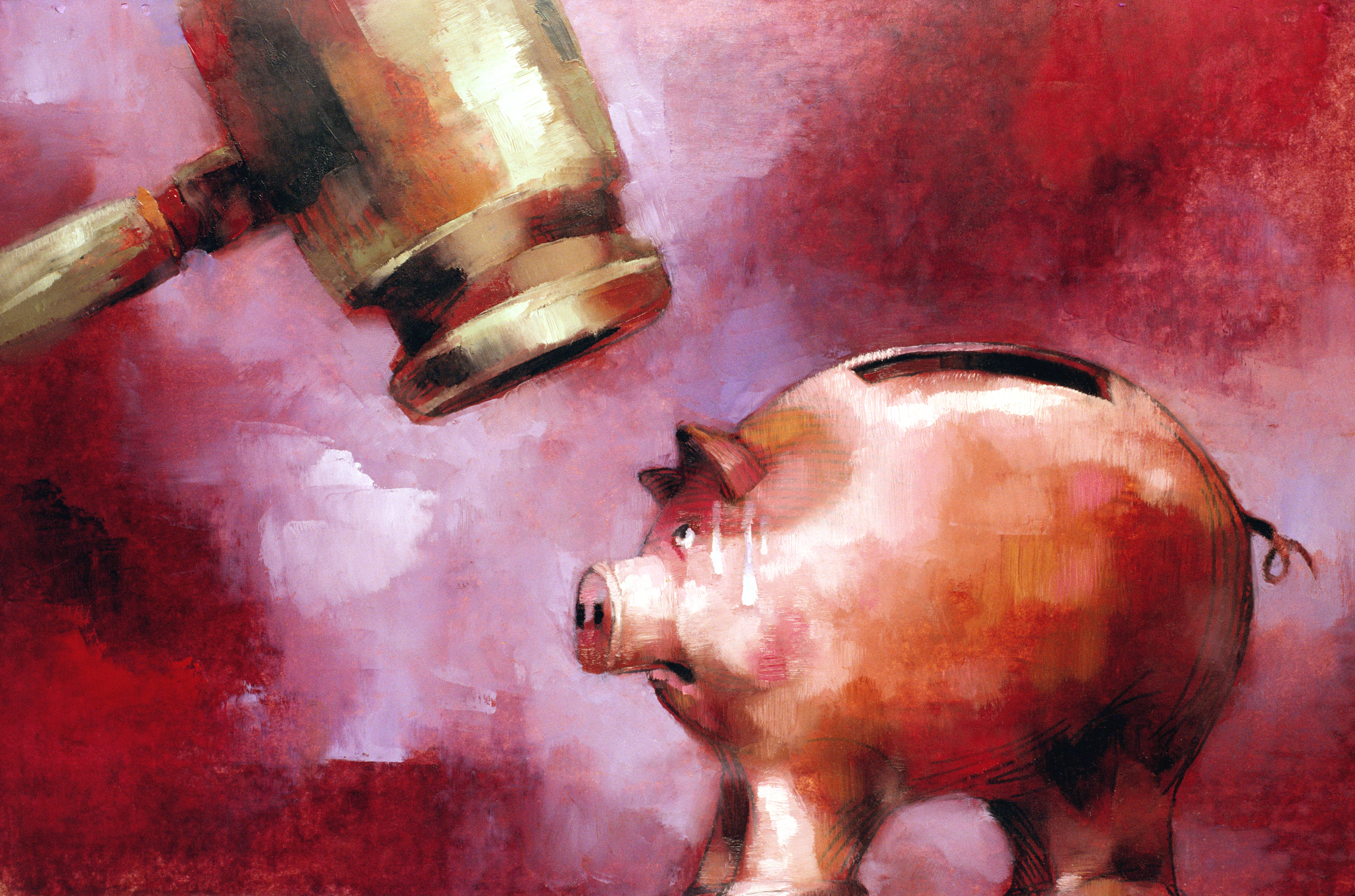The end of cash?
This may be the greatest trick the big banks ever pulled


There's a perfect storm of systemic financial change on the horizon. "Austerity" in Europe hasn't fixed our broken economy. Neither has quantitative easing in the U.S. So what's a mega-bank to do? Why, push to eliminate cash currency altogether, of course!
In the realm of practical experience, capitalism used to more or less signify (a) a regular system of pricing and market exchange (b) made foreseeably stable by (c) an adequately broad and deep enough distribution of savings to ensure that (d) a sufficient share of market participants had the independence and risk tolerance necessary to (e) reason successfully about their economic relationships.
Unfortunately, pressure arose to turn capitalism into a science. Economists wished to systematize their knowledge about capital-based market economies. Opponents of those economies wanted to create a systematic critique capable of proving their inherent inefficiency, instability, inequity — and, ultimately, their inherent unsustainability.
The Week
Escape your echo chamber. Get the facts behind the news, plus analysis from multiple perspectives.

Sign up for The Week's Free Newsletters
From our morning news briefing to a weekly Good News Newsletter, get the best of The Week delivered directly to your inbox.
From our morning news briefing to a weekly Good News Newsletter, get the best of The Week delivered directly to your inbox.
In the minds of ordinary people, capitalism became more of an abstract idea than a body of technical fact, something to vaguely envision and love or hate accordingly. Though the experts could be trusted to run the system (by now, so complex that no ordinary market participant could safely reason on his own about his economic risks and choices), public opinion told us what the elite showed but would not tell: Money was becoming the measure of all things. In the public mind, that is what capitalism came to mean — the social system in which money ruled the world, or at least made it run.
And in this world, it was better to control a lot of debt than a little capital. The rush for debt was on, in the private and the public sector alike. By a remarkable act of delusion and confusion, a system premised on the wisdom of savings was turned inside out.
It's not hard to guess the logical endpoint of this tremendous inversion of capitalism. That's right — an end to even the possibility of savings. And the most logical way to end the possibility of savings is to eliminate cash currency.
Many observers worried about this turn of events can only voice their fears at the margins of respectable economic commentary. Unfashionable goldbugs lament the many signals that a "war on cash" is afoot: caps on bank withdrawals and mandatory reporting of large ones; anti-cash rhetoric from politicians who tie hard currency to crime, terrorism, and other go-to nightmares; and the discouragement of cash hoarding as a means to escape the cost of negative interest rates at European banks.
A free daily email with the biggest news stories of the day – and the best features from TheWeek.com
But here's the thing: Even the big banks have become increasingly brazen in their anti-cash agenda. Citi's Willem Buiter, for instance, put the matter plainly: Despite the disruptions and headaches involved, cash should be wiped out, and replaced with purely electronic funds. He's hardly alone; star Harvard economist Ken Rogoff agrees, calling paper currency "unfit for a world of high crime and low inflation."
Buiter, Rogoff, and their ilk do not care that cash is fit for a world wherein market commerce is relatively free, reliable, sustainable, and scalable downward. They believe we have bigger problems on our hands.
How did we get here? Could it have something to do with the inversion of what used to be known as capitalism? Could it have something to do with the inherent instability and unreality of a world organized around near-universal unpaid debts? Could it have to do with the policy choices executed for decades by the very people who now believe we must kill savings to save the economy?
Yes. But it's our fault, too. We with our love of upward mobility, status signifiers, and location, location, location. Having spurned cash reserves for so long, it may well be too late for us to rush back and proclaim our undying love.
James Poulos is a contributing editor at National Affairs and the author of The Art of Being Free, out January 17 from St. Martin's Press. He has written on freedom and the politics of the future for publications ranging from The Federalist to Foreign Policy and from Good to Vice. He fronts the band Night Years in Los Angeles, where he lives with his son.
-
 The rise of runcations
The rise of runcationsThe Week Recommends Lace up your running shoes and hit the trails on your next holiday
-
 Amorim follows Maresca out of Premier League after ‘awful’ season
Amorim follows Maresca out of Premier League after ‘awful’ seasonIn the Spotlight Manchester United head coach sacked after dismal results and outburst against leadership, echoing comments by Chelsea boss when he quit last week
-
 ‘Jumping genes': How polar bears are rewiring their DNA to survive the warming Arctic
‘Jumping genes': How polar bears are rewiring their DNA to survive the warming ArcticUnder the radar The species is adapting to warmer temperatures
-
 The pros and cons of noncompete agreements
The pros and cons of noncompete agreementsThe Explainer The FTC wants to ban companies from binding their employees with noncompete agreements. Who would this benefit, and who would it hurt?
-
 What experts are saying about the economy's surprise contraction
What experts are saying about the economy's surprise contractionThe Explainer The sharpest opinions on the debate from around the web
-
 The death of cities was greatly exaggerated
The death of cities was greatly exaggeratedThe Explainer Why the pandemic predictions about urban flight were wrong
-
 The housing crisis is here
The housing crisis is hereThe Explainer As the pandemic takes its toll, renters face eviction even as buyers are bidding higher
-
 How to be an ally to marginalized coworkers
How to be an ally to marginalized coworkersThe Explainer Show up for your colleagues by showing that you see them and their struggles
-
 What the stock market knows
What the stock market knowsThe Explainer Publicly traded companies are going to wallop small businesses
-
 Can the government save small businesses?
Can the government save small businesses?The Explainer Many are fighting for a fair share of the coronavirus rescue package
-
 How the oil crash could turn into a much bigger economic shock
How the oil crash could turn into a much bigger economic shockThe Explainer This could be a huge problem for the entire economy
